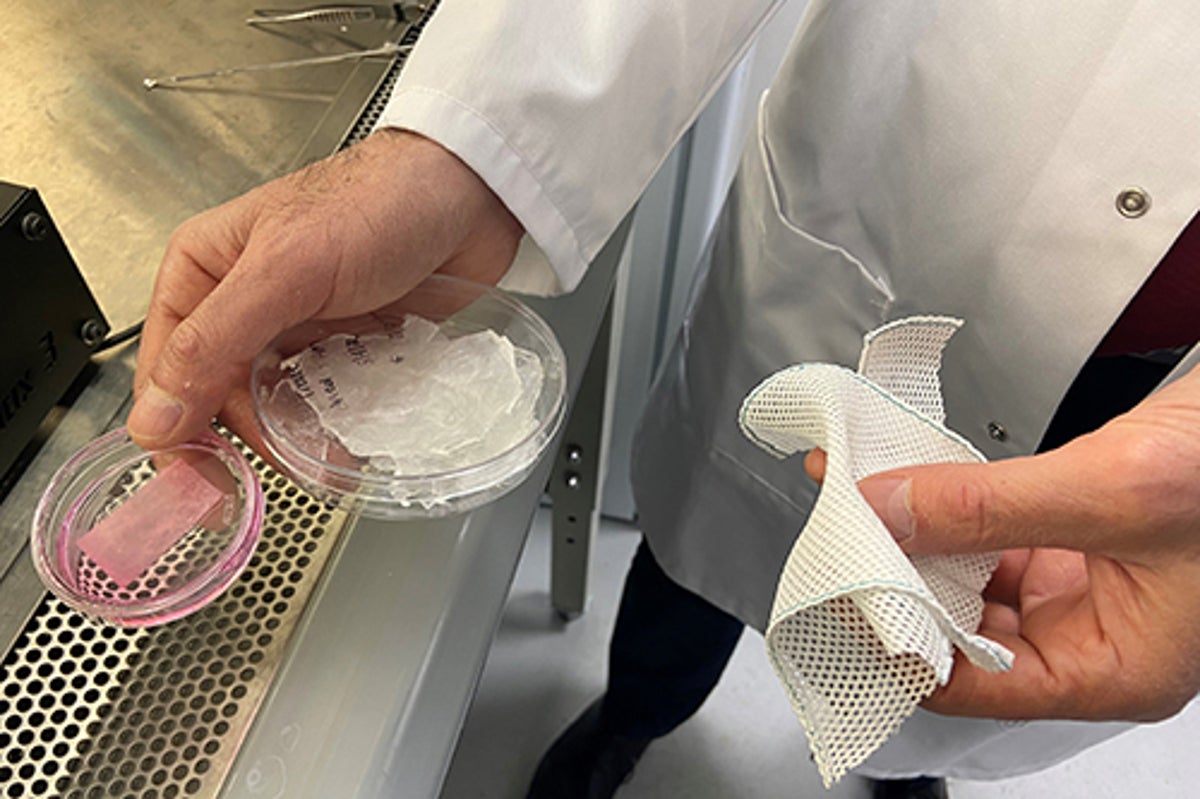
Doctors have used “stem cell plasters” to treat a baby living with congenital heart disease for the first time, an advance that may lead to a new procedure to repair the condition without needing as many open-heart operations.
Congenital heart defects are a common anomaly seen in babies even before they are born, with studies suggesting around 13 babies are diagnosed with the condition every day in the UK.
These anomalies include defects to the baby’s heart valves, the major blood vessels in and around the heart and the development of holes in the heart, explained researchers at the University of Bristol in the UK.
While doctors currently perform open-heart surgery to temporarily repair the problem, scientists said the materials used for these patches or replacement heart valves are not completely biological and cannot grow with the baby.
Since growing children would need replacement patches and valves to treat the condition, they have to go through the same surgery multiple times, keeping them in hospital for weeks at a time.
Researchers said around 200 repeat operations are performed every year in the UK for people living with congenital heart disease.
In a new development, doctors have used a novel stem cell patch which they claim repairs abnormalities in the large blood vessel that controls blood flow from the heart to the lungs and mends holes between the two main pumping chambers of the heart.
These plasters are designed to be sewn into the area of the child’s heart that needs repairing during surgery.
The stem cells in these plasters boost the repair of heart tissue without being rejected by the child’s body.
Stem cells are undifferentiated cells in the body that can develop into specific cell types with specialised functions in the right conditions.
The stem cell plasters have the potential to adapt and grow with the child’s heart as they get older, removing the need for repetitive heart surgeries, according to the researchers.
“For years families have come to us asking why their child needs to have heart surgery time and time again. Although each operation can be lifesaving, the experience can put an unbelievable amount of stress on the child and their parents,” Massimo Caputo, professor of Congenital Heart Surgery at the University of Bristol, said in a statement.
“We believe that our stem cell patches will be the answer to solve these problems,” Dr Caputo said.
If found to be successful in large-scale clinical trials, scientists believe the experimental therapy can act as a “healing plaster” and revolutionise the results of heart surgery for children.
“It could offer a solution that means their heart is mended once and forever in a single operation, preventing people from facing a future of repeated surgeries and giving them the gift of a happier and healthier life,” said Sonya Babu-Narayan, Associate Medical Director at the British Heart Foundation.







